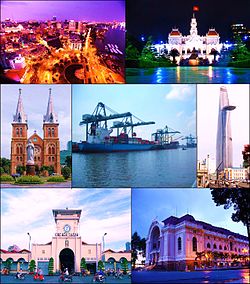
| Standard & Poors more confident in Vietnam | |
The New York-headquartered financial services firm Standard & Poor’s said in a report given to The Saigon Times Daily that in August it revised Vietnam’s economic outlook to ’BB-/Stable/B’ from ’BB-/Negative/B’. "In line with this, we raised our ASEAN scale long-term rating on Vietnam to ‘axBB+’ from ’axBB’’ said the report conducted in August 2012. Standard & Poor’s primary credit analyst Kim Eng Tan said the outlook revision reflected the firm’s assessment of a reduction in the risks like high inflation, trade deficit and foreign exchange reserves to Vietnam’s macroeconomic and financial stability. The firm noted Vietnam’s inflation had retreated to below8.5% as of May, 2012, from a peak of 23% in August, 2011. The trade deficit shrank to US$58 million in the first seven months of this year. Foreign exchange reserves held at the central bank had reportedly risen to almost US$20 billion. And lending rates on bank loans were easing from the high levels of 2011. "We expect Vietnam to maintain these improvements as the government has expressed its intention to keep price stability high on its policy priorities. [...] We could raise the ratings if the economy resumes strong and sustained growth as macroeconomic stability returns. Vietnam’s sustaining per capita real gross domestic product growth of over 6% in the next five to 10 years could lead to a rating upgrade," Tan said. According to the report, the stable outlook on the ratings reflects Standard & Poor’s view that Vietnam would maintain an appropriately tight economic policy stance until there were clear signs of macro-economic instability receding, including sustained single-digit inflation rates. This would allow fiscal, external, and economic indicators to remain close to current levels or improve over the next two to three years. Vu Duc Dam, minister- chairman of the Government Office, recently told the Daily that Vietnam’s economic monitoring was lauded by foreign credit organizations and investors. "Many foreign investors have told us if the government continues its current macro-monitoring, the economic growth will be increasingly firm and there might be a new investment wave into Vietnam over the next two years." Global rating agency Fitch Ratings, dual-headquartered in New York and London, is also upbeat about Vietnam’s economy by recently affirming the country’s foreign- and local-currency issuer default ratings at ’B+’. The outlook for both ratings was stable. The country’s ceiling was also affirmed at ‘B+,’ and the short-term foreign currency issuer default ratings at ‘B.’ "The ratings and stable outlook reflect the success so far of efforts by Vietnam’s authorities to tackle the macro-financial imbalances that arose in 2010 and 2011," said Fitch’s Asia-Pacific Sovereign Ratings group director Art Woo. Vietnam WVB Financial Intelligence Services Company Ltd., a global company offering business and investment consultancy services, in mid-July trumpeted its Vietnam Business Confidence Index for 2012’s second quarter conducted over 154 companies across Vietnam’s 11 primary industries. Under the survey, 71.43% of surveyed companies said Vietnam’s overall economic conditions had improved against one year ago and would be better over the next 12 months. Some 72.73% were confident their sales revenues would increase over the next 12 months. Besides, 70.78% believed their profits would rise in the coming years. However, according to the Euro-Cham Business Climate Index Vietnam Survey for 2012’s third quarter conducted at over more than 200 European firms in Vietnam and released in early this month, 60% of respondents thought they would see a further deterioration of an already difficult economic situation against 30%, who believed the situation would stabilize and gradually improve, when asked about Vietnam’s macroeconomic outlook over the next six months. "This shows that the measures taken to stabilize the economy do not ease the concern of the business community about the macroeconomic outlook,” said the survey. | |
| SaigonTimes |
